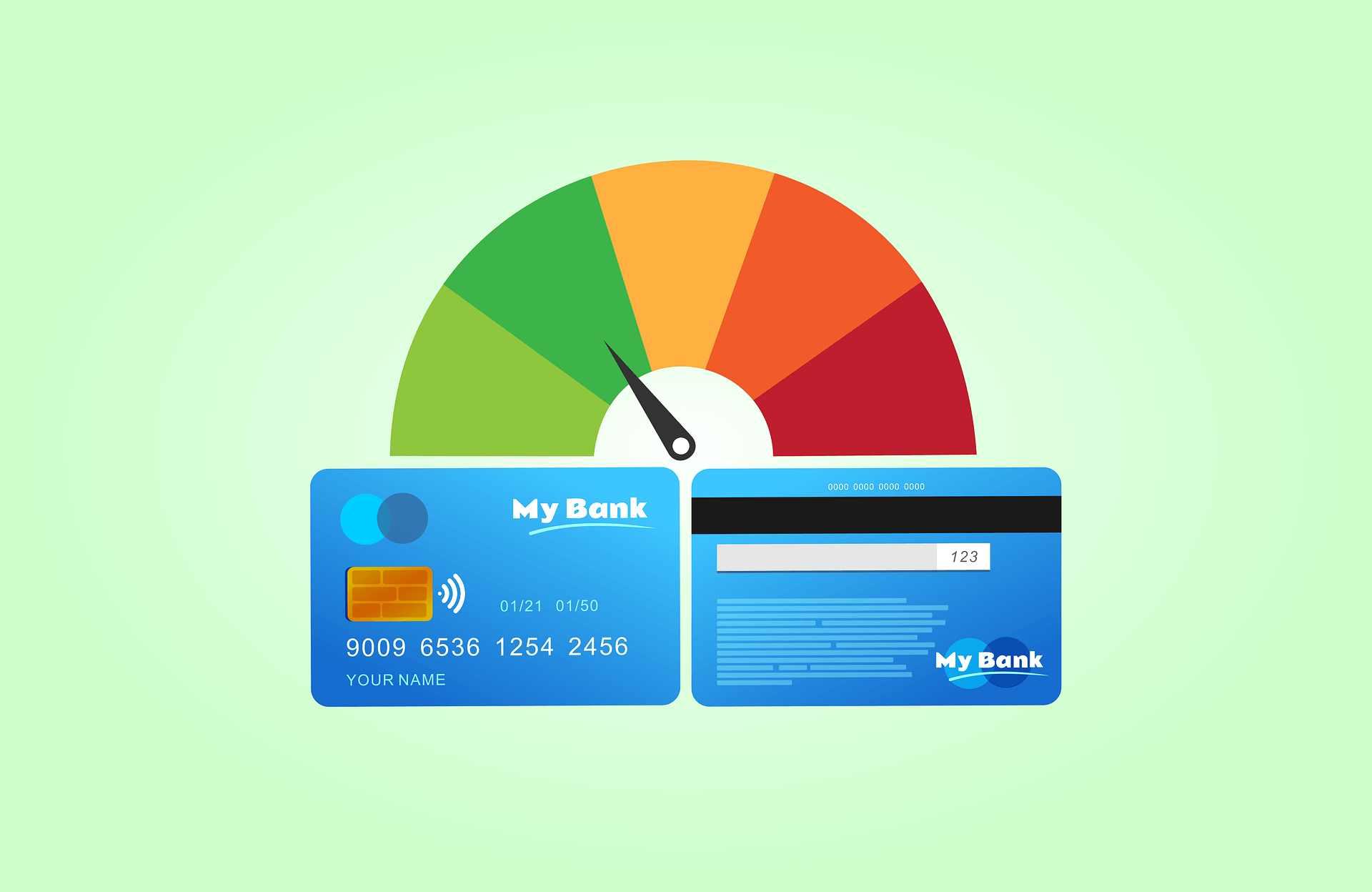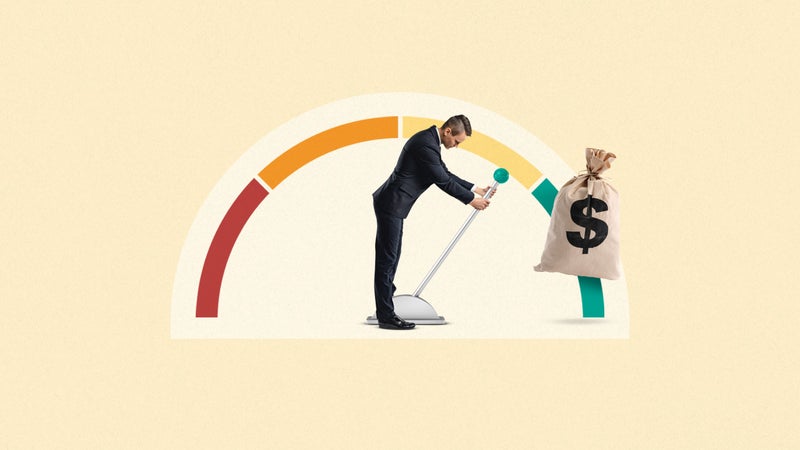Your credit score may decrease if you apply for loans, but this is typically only a short-term effect. Learn more about how loan applications affect your credit score.
This article is meant to be a general reference source; it is not meant to offer information specific to American Express goods or services. Similar goods and services provided by various businesses will differ in their features, so before purchasing any financial product, you should always read the product details.
Even if the loan is approved, your credit score may slightly decrease if a lender makes a hard credit inquiry on your file.
However, if you compare rates and submit multiple applications for personal loans in a short period of time, the multiple hard inquiries might in some circumstances only count as one inquiry.
Before applying for a loan, you can lessen the impact on your credit score by doing some research, becoming prequalified, and reviewing your credit report.
Lenders usually require a copy of your credit report from a credit bureau, regardless of whether you’re applying for a personal loan or completing numerous applications for a mortgage, student loan, or financing at a car dealership. To put it succinctly, does applying for loans have an impact on your credit score? Here are some additional details regarding how applying for a personal loan may impact your credit score.

How We Make Money
The businesses whose offers you see on this website pay us. Unless our mortgage, home equity, and other home lending products are specifically prohibited by law, this compensation may have an impact on how and where products appear on this website, including, for example, the order in which they may appear within the listing categories. However, this payment has no bearing on the content we post or the user reviews you see here. We don’t include the range of businesses or loan options that you might have.

Our goal at Bankrate is to assist you in making more informed financial decisions. Although we follow stringent guidelines, this post might mention goods from our partners. Heres an explanation for . Bankrate logo.
Bankrate was established in 1976 and has a long history of assisting consumers in making wise financial decisions. We’ve upheld this reputation for more than 40 years by assisting people in making sense of the financial decision-making process and providing them with confidence regarding their next course of action.
You can rely on Bankrate to prioritize your interests because we adhere to a rigorous editorial policy. All of the content we publish is objective, accurate, and reliable because it is written by highly qualified professionals and edited by subject matter experts.
So that you can feel secure when investing your money, our loans reporters and editors concentrate on the topics that matter most to consumers: the various loan options, the greatest rates, the best lenders, how to pay off debt, and more. Bankrate logo.
You can rely on Bankrate to prioritize your interests because we adhere to a rigorous editorial policy. Our team of distinguished editors and reporters produces truthful and precise content to assist you in making wise financial decisions.
We value your trust. Our goal is to give readers reliable, unbiased information, and we have established editorial standards to make sure that happens. Our reporters and editors carefully verify the accuracy of the editorial content they produce, making sure you’re reading true information. We keep our editorial staff and advertisers apart with a firewall. No direct payment from our advertisers is given to our editorial staff.
The editorial staff at Bankrate writes for YOU, the reader. Providing you with the best guidance possible to enable you to make wise personal finance decisions is our aim. We adhere to stringent policies to guarantee that advertisers have no influence over our editorial content. Advertisers don’t pay our editorial staff directly, and we carefully fact-check all of our content to guarantee accuracy. Thus, you can be sure that the information you’re reading, whether it’s an article or a review, is reliable and reputable. Bankrate logo.
How we make money
You have money questions. Bankrate has answers. For more than 40 years, our professionals have assisted you in managing your finances. We always work to give customers the professional guidance and resources they need to be successful on their financial journey.
Because Bankrate adheres to strict editorial standards, you can rely on our content to be truthful and accurate. Our team of distinguished editors and reporters produces truthful and precise content to assist you in making wise financial decisions. Our editorial team produces factual, unbiased content that is unaffected by our sponsors.
By outlining our revenue streams, we are open and honest about how we are able to provide you with high-quality material, affordable prices, and practical tools.
Bankrate. com is an independent, advertising-supported publisher and comparison service. We receive payment when you click on specific links that we post on our website or when sponsored goods and services are displayed on it. Therefore, this compensation may affect the placement, order, and style of products within listing categories, with the exception of our mortgage, home equity, and other home lending products, where legal prohibitions apply. The way and location of products on this website can also be affected by other variables, like our own unique website policies and whether or not they are available in your area or within your own credit score range. Although we make an effort to present a variety of offers, Bankrate does not contain details about all financial or credit products or services.
Applying for lending products may cause a small decline in your credit score. Applying for a personal loan can, at least temporarily, lower your credit score. Personal loans are no different.
However, there is a benefit: over time, timely monthly payments may also result in improvements to your credit score. Your credit score is primarily based on your payment history, which will get better.
How loan applications impact your credit
- Lenders will review your credit history and score when you apply for a personal loan in order to evaluate your creditworthiness and financial situation. They do this by running a hard credit check.
- Additionally, lenders let you do a soft credit check to see what terms and rates you might be qualified for; this check doesn’t affect your credit score. However, not all lenders provide this choice, and if you choose to apply for the loan, you will still need to submit to a hard credit check.
- Your credit score may drop by as much as 10 points temporarily as a result of hard credit checks.
- Applying for a loan will probably lower your credit score by five points or less if you have excellent credit.
- The hard credit check will remain on your credit report for up to two years, but your credit score will usually improve within a few months.
To minimize any potential bad credit effects, it is a good idea to be as prepared as possible for the hard credit check that is required when applying for a personal loan. When you apply for a personal loan, you must also provide additional documentation, such as proof of address, proof of identity, and proof of employment and income. Prepare and possess these prior to applying to facilitate a more seamless procedure.
How personal loans could help your credit
When utilized appropriately and in the right situations, a personal loan can improve your credit score in the following ways:
- Improved credit mix: If you make your payments on time, having a diverse range of lending products in your portfolio will help you maintain a high credit score. Having a combination of revolving and installment loans is generally a good idea because your credit mix makes up 10% of your FICO score.
- Debt consolidation: Generally speaking, personal loans with lower interest rates than credit cards are an excellent option for consolidating debt. Your credit score will rise if you can pay off outstanding debt more quickly with a reduced interest rate.
- Payment history: When repaid in full and on schedule, a personal loan can contribute to a favorable payment history. Your FICO score is primarily determined by your payment history, which accounts for thirty-five percent of your score.
- Decreased credit utilization ratio: While a personal loan has no effect on your credit utilization ratio, paying off revolving credit card debt with that loan may reduce it. Generally speaking, you want to keep your credit utilization below 30%.
How personal loans could hurt your credit
Although personal loans have the potential to raise your credit score, they can also lower it if you are unable to repay them. You should think about the following risks before requesting a personal loan:
- Hard inquiry on your credit: When you formally apply for the loan, your credit score is probably going to temporarily decline as a result of the hard credit check. Applying for many loans quickly could damage your credit, even though it might not have a negative impact on your long-term credit score.
- Monthly payments: Examine your monthly spending to determine whether adding another payment each month to your expenses is within your means before applying for a loan.
- More debt: Although not all debt is bad, it’s crucial to assess your current financial status before applying for a loan to decide if it’s the right course of action. Taking on more debt than you can afford can result in missed or late payments, which can negatively impact your credit score and future access to other lending options.
- Possibility of high interest rates and fees: In addition to other fees, you might be subject to interest rates as high as 36%, contingent on your creditworthiness. If you’re not sure you can afford the rates you’re offered in the long run, you run the risk of not making your payments on time, which can harm your credit and result in thousands of dollars in interest charges.
These are a few things that could go wrong with your loan and lower your credit score:
| Event | Average time on credit report |
|---|---|
| Late payments | 7 years |
| Debt collections | Up to 7 years |
| Chapter 13 bankruptcy | 7 years |
| Chapter 7 bankruptcy | 10 years |
Payment defaults, bankruptcy, and late payments all remain on your credit record for at least seven years. When a payment is past due, it is forwarded to collections, which can result in a 90–110 point decrease in your credit score.
The lender may report your late payment to the credit bureau if you don’t make the late payment within 30 days. Although some lenders allow up to 60 days, it is preferable to make the payment as soon as possible.
What to consider before taking out a personal loan
Think about the advantages and disadvantages of adding another monthly expense to your budget before taking out a loan. A few things to think about are:
- Justification for the loan: Depending on the loan’s intended use, personal loan providers often provide a range of interest rates. For example, a personal loan used for vacation financing has a far higher interest rate than one used for debt consolidation.
- Your credit score and history: Do you have a high credit score and sound credit practices? If not, you can work to raise your credit score by making some of your poor credit practices whole again.
- Your debt-to-income ratio (DTI) is a measurement of how much money you owe each month in comparison to how much money you make. Generally speaking, your chances of being approved for a loan decrease with an increased DTI ratio. Use the debt-to-income ratio calculator on Bankrate to determine your DTI ratio.
- All of your options: One of the most crucial things to do is compare rates on personal loans to find the best fit for you. Each lender offers different rates, fees and conditions. Investigate all of your options to determine how much you would be paying each month, particularly if your credit isn’t the best.
Consolidating credit card debt, paying off large bills, or raising your credit score are all possible with the help of personal loans. Nonetheless, it’s crucial to understand how loan applications may impact your credit score.
When you apply, your credit score might temporarily drop, but if you make your loan payments on time and use the money to pay off debt, you could eventually raise your credit score. Finally, make sure you compare rates and do the math before applying to make sure you’re getting the best terms and rates possible.





FAQ
How much will my credit score go down if I apply for a loan?
Your credit score may drop by as much as 10 points temporarily as a result of hard credit checks. Applying for a loan will probably lower your credit score by five points or less if you have excellent credit.
Will getting a loan hurt my credit?
Does applying for a personal loan formally lower your credit score? No, not really. Missed payments can lower your credit score more than a few points. Taking out a personal loan will also result in a rise in your debt, which is one of the elements that determines your credit score.
Does getting denied a loan hurt credit score?
Rejecting an application for a credit card or loan won’t appear on your credit report and won’t affect your credit scores in any way. Before applying for credit, you might want to check your credit and, if necessary, take action to improve it in order to increase the likelihood that your application will be accepted.
Does a credit application hurt your credit?
Your credit report may be hard pulled when you apply for a new credit card, and the credit company may review it as part of the approval process. Your FICO Score may be lowered by the credit history inquiry, but the impact is usually minimal (for most, this means fewer than 5 points).
Read More :
https://www.bankrate.com/loans/personal-loans/get-personal-loan-without-damaging-your-credit/
https://www.capitalone.com/learn-grow/money-management/how-personal-loan-affects-credit-score/
